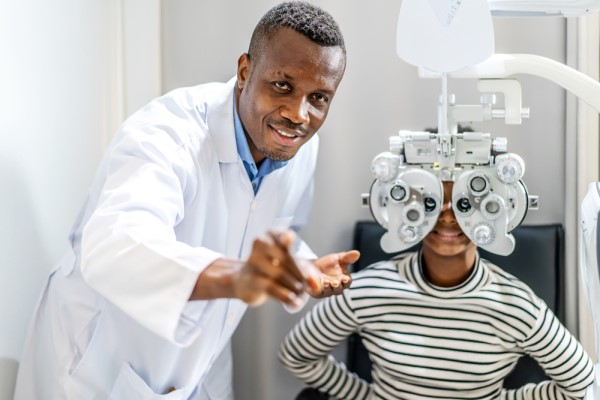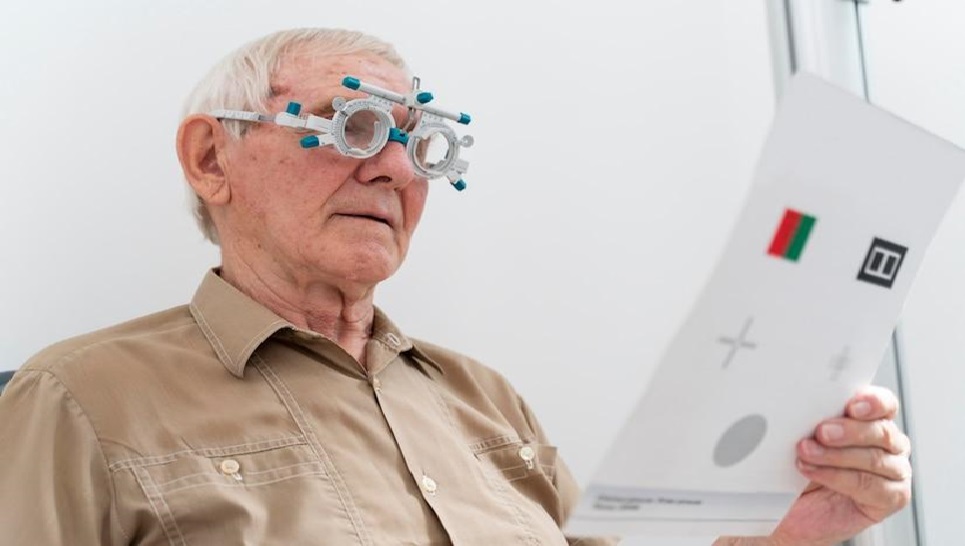Maintaining eye health is crucial for preserving vision and quality of life as we age. Regular eye exams help detect issues like cataracts, glaucoma, macular degeneration, and diabetic retinopathy early, preventing complications and delaying progression. These exams also ensure seniors receive personalized care, updated prescriptions, and vision correction options like glasses or contacts. Prioritizing regular eye exams allows seniors to stay independent, active, and connected to their surroundings, enhancing overall well-being.
Understanding Vision Changes In Seniors
As people age, they often experience eye health changes like presbyopia (difficulty focusing on nearby objects), requiring reading glasses or bifocals. Reduced visual acuity can make reading and driving challenging, while age-related corneal changes can cause glare and light sensitivity.
Seniors are also more prone to cataracts and glaucoma, which can severely impair vision if untreated. Regular eye exams are crucial for early detection and management, helping maintain independence and quality of life.
The Importance Of Regular Eye Exams For Seniors
Regular eye exams are vital for seniors as they help prevent potential vision loss by detecting eye conditions early, even before symptoms appear. Optometrists assess visual acuity and overall eye health, identifying issues like cataracts or glaucoma, allowing for timely management and prevention of further deterioration.
For seniors with existing conditions, such as diabetes, routine exams are essential for monitoring risks like diabetic retinopathy. These exams also allow updating prescriptions, ensuring seniors have the correct lenses for daily tasks. Regular eye exams support eye health and help seniors maintain an active, fulfilling lifestyle.
Common Vision Problems In Older Adults
Seniors often face vision problems that can impact daily life if untreated. Cataracts cause blurry vision and glare sensitivity, making regular eye exams essential for early detection and surgery. Age-related macular degeneration (AMD) distorts central vision, complicating tasks like reading, while routine exams help monitor AMD and enable early treatment. Glaucoma can damage the optic nerve without symptoms, so regular exams are crucial for detection. These conditions underscore the importance of routine eye care in enhancing seniors’ quality of life and independence.
How Eye Exams Can Detect And Prevent Vision Problems
Eye exams are crucial for detecting and preventing vision problems before they become severe. Optometrists use various tests, such as visual field tests for glaucoma and retinal imaging for diabetic retinopathy, to identify early signs of severe conditions. Eye exams can also reveal systemic health issues like hypertension and diabetes, prompting proactive management of overall health.
Additionally, exams offer opportunities to discuss preventive measures, such as lifestyle changes, sun protection, and exercise, promoting a holistic approach to vision care. Regular eye exams help detect issues early and encourage steps that improve eye health and overall well-being.

The Role of Nutrition in Maintaining Eye Health
Proper nutrition is vital in preserving eye health, particularly for seniors at risk for age-related vision issues. A balanced diet rich in essential nutrients, such as vitamins A, C, and E, along with omega-3 fatty acids, can protect against conditions like cataracts and macular degeneration. Leafy greens, carrots, fish, and nuts are excellent sources of these nutrients, providing crucial support for eye health.
Antioxidants like lutein and zeaxanthin, commonly found in green vegetables and colorful fruits, offer additional protection for the retina by filtering out harmful light. Staying hydrated also helps to prevent dry eyes, a common concern for many seniors. Seniors can maintain optimal eye health and overall well-being by prioritizing nutrient-dense foods.
As noted by Level One Urgent Care, proper dietary choices are foundational in managing age-related health concerns, including vision. Their team emphasizes that recognizing and addressing nutritional deficiencies is critical to comprehensive senior care, helping to mitigate the progression of various age-related eye conditions.
Tips For Finding An Optometrist For Seniors
Finding the right optometrist is crucial for seniors seeking quality eye care. Start by asking family, friends, or healthcare providers for recommendations and checking online reviews. Choose an optometrist experienced in senior care who understands age-related vision issues and takes time to explain treatments and address concerns. Accessibility is important, so look for a conveniently located practice with senior-friendly facilities and consider whether they offer home visits or telehealth services. Prioritizing these factors will help seniors find the best care.
Lifestyle Adjustments For Seniors With Vision Changes
Lifestyle adjustments can significantly improve the quality of life for seniors with vision changes. Well-lit living spaces and hazard removal reduce fall risks, while brighter bulbs and clear pathways enhance home safety. Assistive technologies, like magnifiers and vision apps, help seniors perform daily tasks and promote independence. Regular exercise benefits physical and eye health, and engaging in social activities combats isolation.
Seniors can effectively manage vision changes and maintain an independent lifestyle by making these adjustments.
Assistive Devices And Technologies For Vision-Impaired Seniors
Assistive devices and technologies are essential for seniors with vision impairments. Magnifying glasses and handheld magnifiers aid reading, while talking clocks and thermometers assist with daily tasks. Smartphone apps enable text reading and navigation, and optical character recognition apps read printed material aloud. Advanced tools like smart glasses offer adjustable settings, helping seniors find tailored solutions for a connected lifestyle.
Conclusion: Taking Proactive Steps For Maintaining Vision Health In Seniors
Maintaining vision health is essential for seniors. Regular eye exams help detect and manage vision changes early. Understanding common vision problems, nutrition, and lifestyle adjustments empowers seniors to improve eye health.
Choosing the right optometrist and understanding Medicare coverage ensures access to quality care. Assistive devices and technologies also support daily activities.
Prioritizing eye health enhances the quality of life. By staying informed and scheduling regular exams, seniors can lead fulfilling lives despite vision changes. Take proactive steps to maintain your vision, health, and enjoyment of life.





